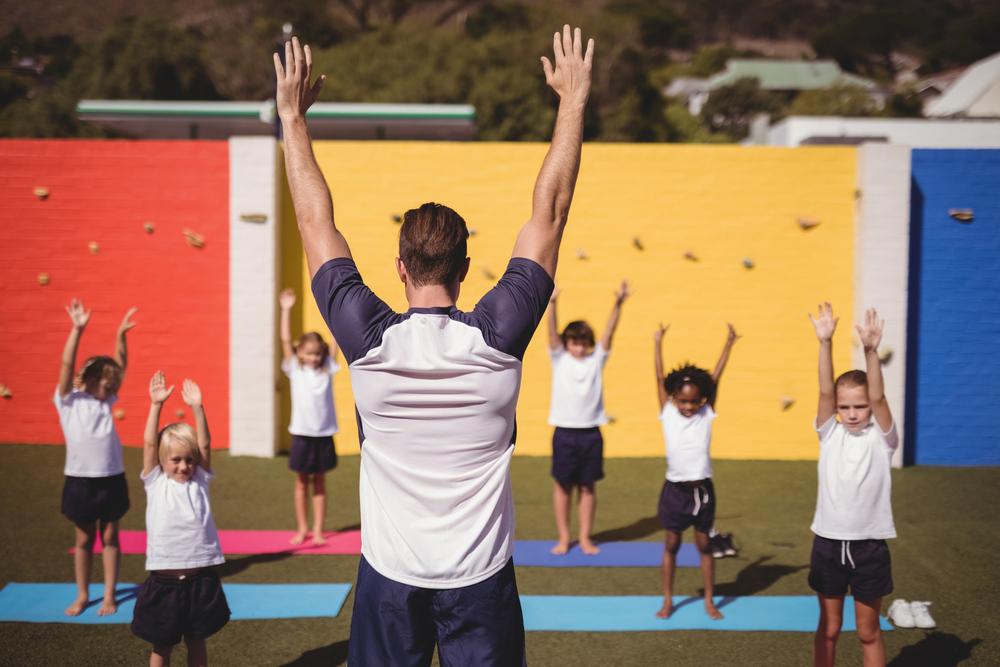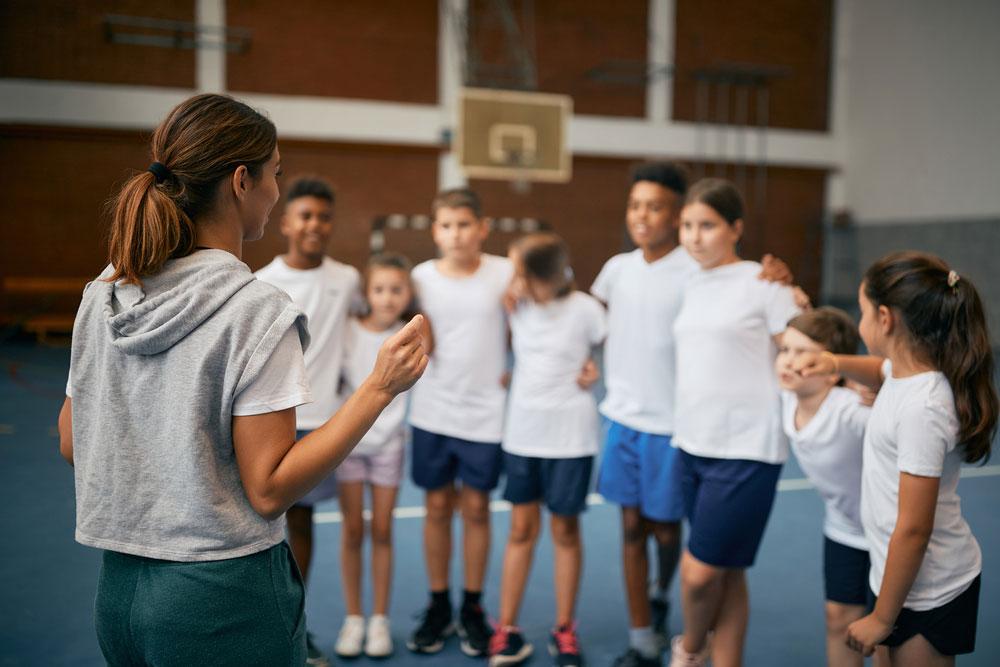 As a parent, raising a happy and healthy child is probably one of your top goals. Throughout this journey, you’ll not only be cultivating a positive, caring environment for your young athlete to thrive in, you will also be acting as a role model of the behaviors and values you want to instill.
As a parent, raising a happy and healthy child is probably one of your top goals. Throughout this journey, you’ll not only be cultivating a positive, caring environment for your young athlete to thrive in, you will also be acting as a role model of the behaviors and values you want to instill.
The American Academy of Child and Adolescent Psychiatry (AACAP) defines a role model as “a person who serves as an example by influencing others. For many children, the most important role models are their parents and caregivers.”
Leading by example and embracing the fact that you are your child’s key role model will help them develop the kind of behavior you want them to adopt and practice throughout life. The AACAP explains that “children look up to a variety of role models to help shape how they behave in school, relationships, or when making difficult decisions.”
It’s imperative for parents to take a look at the way they are living their own lives and reflect on what they want their children to mirror, especially since “negative role models may also influence children,” according to the AACAP. Here are five practices that parents should avoid in order to position themselves as the positive role model their young athlete needs to build character and confidence in sport and in life.
Don’t Silence Your Goals
According to Michele Borba, PhD, an internationally recognized character development education expert and educational psychologist, “To help children feel comfortable talking about goals, we parents need to share our own aspirations.”
Borba adds, “The secret is to purposefully model goal-setting when your kids can watch or listen. In fact, modeling is such a simple way to learn the skill. All you need to remember is the formula for goal-setting: I will + what + when and then teach it to your kids.”
Practice writing out a few goals with your athletes with the formula above. For example, you can suggest, “I will improve on passing the ball more accurately by the end of the soccer season.”
Don’t Set Unrealistic Expectations
While there’s nothing wrong with aiming high, be aware of your athlete’s true capabilities and work with them to set realistic expectations for themselves.
“Be careful of setting too high a standard. Putting your kid in situations that are too difficult puts them at the risk of failing and lowering feelings of competence. Aim for ‘one step more.’ Effective expectations encourage kids to be their best, so that they can develop a solid belief in themselves,” says Borba.
For instance, if your child is learning a new sport skill, like shooting the basketball with their less-dominant side, you cannot expect them to perfect that skill in a season. Instead, help them set an expectation that they’ll be attempting to score 1/3 of their shots with that less-dominant arm by the end of the season.
Don’t Lose Sight of the Big Picture
At times, it can be easy to lose sight of the big-picture benefits sport participation can bring to your young athlete’s life. Some sport parents get so bogged down in wins or loses that they forget how sport enriches the lives of young athletes by teaching them values and life skills, such as honesty, integrity, sportsmanship, and teamwork.
Frank Smoll, PhD, a sport psychologist and professor at the University of Washington, suggests, “Parents should never shout criticism or instruction at their children – even to teammates and opponents. If parents wish to shout encouragement or praise, codes of sportsmanship dictate that recognition be given to other athletes as well.”
He emphasizes that “there’s no reason why a great play or great effort made by the opposition shouldn’t also be appreciated.”
Don’t Let Your Emotions Get the Best of You
In recent times, we’ve seen how a bad call can push some parents over the edge and create tension on the sidelines. But that behavior will only teach your child that it’s okay to erupt in violence when things do not go their way.
“When parents yell at or criticize athletes, coaches, or officials, they set an incredibly poor example. It’s not surprising to find that parents who exhibit poor self-control in their own lives often have children who are prone to emotional outbursts and poor self-discipline,” says Smoll.
He adds, “If parents are to expect sportsmanship and self-control from their children, they need to exhibit the same qualities.”
Don’t Forget to Show Empathy
According to Borba, “Empathy is the ability to identify with and feel for another person. It’s the powerful quality that halts violent and cruel behavior and urges us to treat others kindly.”
When parents can display empathy on a daily basis, they encourage their young athlete to show the same grace to their teammates, opponents, coaches, and officials.
Borba confirms that “the more aware that kids are of what empathy sounds like, the more likely they are to use those behaviors in their daily lives. Let’s not assume our children know how to show others they care. For instance [phrases to share are]: ‘You look upset.’ ‘I understand how you feel.’ ‘It makes me feel sad that you’re hurt.’ ‘I bet that hurts a lot. It happened to me, too.’”
______
Your influence as a parent is something that should not be taken for granted. Remember, young people are always observing your actions and attitudes. At the end of the day, the way you behave can easily impact your child’s development in a positive or negative way.



